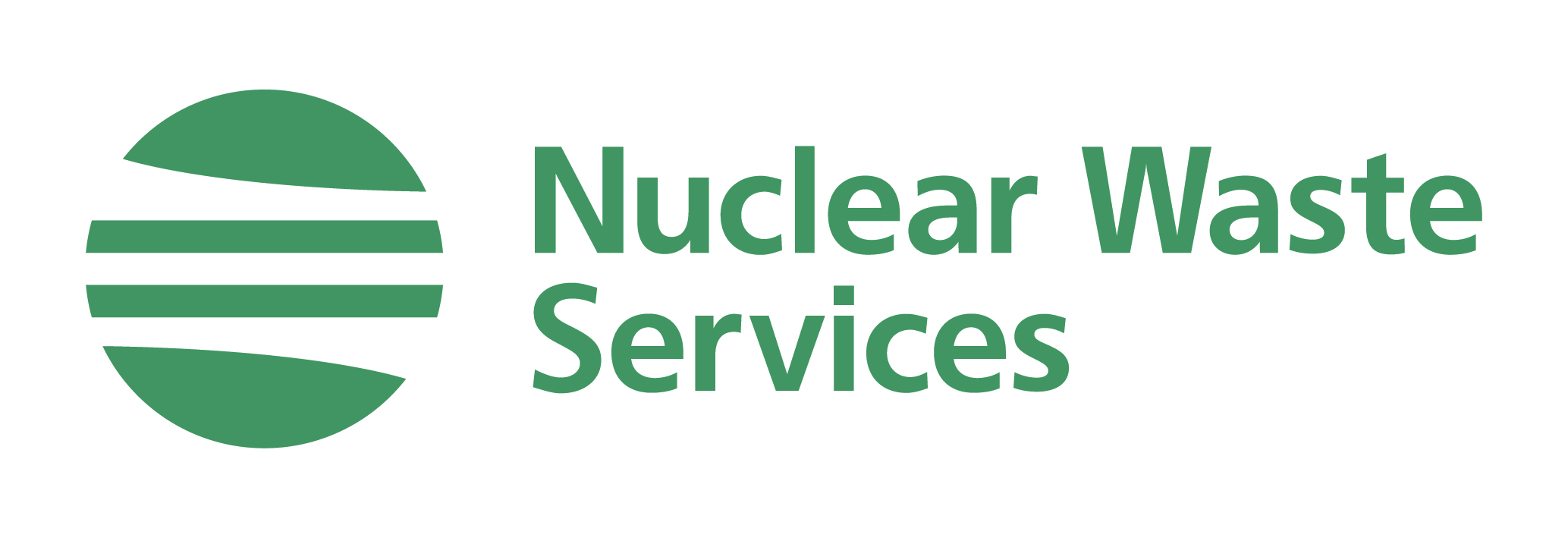Projects Recruiting Researchers
Applications are invited from candidates interested in an NWS sponsored PhD project.
As an NWS RSO student you will be conducting world leading, high quality, and relevant research to underpin the NWS geological disposal programme. Your PhD research will address gaps and uncertainties relevant to the design and development of a Geological Disposal Facility (GDF), potentially the most significant environmental infrastructure project in the UK. Throughout your research project you will be supported by the NWS RSO with professional networking opportunities, support to publish your work and opportunities to present at relevant conferences. If you want to undertake impactful research, consider one of the fully funded PhD projects below. More research projects will be added to this page regularly as funding becomes available. Sign up to our newsletter to be kept up to date.
If you are interested in one of the fully funded PhD projects below, click on the title of the project to get further details. Please get in touch with the supervisor for more information on how to apply.
Underpinning UK vitrified waste disposal in a geological facility
Title: Underpinning UK vitrified waste disposal in a geological facility
Project Background:
In a geological disposal facility for radioactive waste, the release of radionuclides to the geosphere, over a period of 100,000s of years, will be controlled by the interaction of groundwater with the waste. Although vitrified radioactive waste is a highly durable material, it will slowly dissolve. This project aims to quantify the rate of vitrified waste degradation, using glasses produced in exactly the same way as real radioactive waste glass, but without the highly radioactive elements. These materials, known as magnox-glasses, are made on the vitrification test rig – a full-scale replica of the vitrification line at the Sellafield site.
We will make a “mini-geological disposal facility” in the laboratory, where borosilicate glass specimens will be placed in anoxic heated vessels containing groundwater simulants with / without the materials under consideration for containing the glass, e.g. stainless steel, carbon steel or copper. The rate of glass degradation will be directly measured, while the formation of corrosion layers – akin to rust – will be analysed to determine what drives degradation. The results of the project will be used to inform the best container materials for vitrified waste, as well as informing predictive models of the long-term safety of radioactive waste disposal.
Project Aims and Methods:
This project aims to fill a key gap in the understanding of UK high level waste glass dissolution: understanding the dissolution of full-scale simulant magnox glass under conditions relevant to disposal. The key phases of work are as follows: (1) literature review; (2) acquisition and preparation of glass and container materials; (3) dissolution tests; (4) post-dissolution characterisation (e.g. SEM/EDX, XRD, TEM, Mossbauer spectroscopy, µ-XAS techniques).
Having obtained (or synthesised by standard glass melting techniques) simulant radioactive waste glass materials for study, a range of dissolution experiments will be performed to establish how groundwater composition and container material type will influence the rate at which radionuclides (or their surrogates) are leached into solution. The dissolution experiments will form a major part of the work and a series of different standard leaching protocols will be used, with development of alternative leaching protocols throughout the project as necessary. The amount of glass constituents leached into solution will be measured using ICP techniques (e.g. ICP-OES and ICP-MS), as well as ion chromatography, giving insight into the rate of glass dissolution. Post-dissolution characterisation using the laboratory and synchrotron facility techniques (e.g. at Diamond Light Source or National Synchrotron Light Source-II) detailed above, will enable an understanding of glass dissolution mechanisms. Both are important input for the safety case for radioactive waste disposal currently being formulated by the project sponsor, Nuclear Waste Services.
Candidate:
This project would suit someone with a 1st or 2:1 Bachelor or Masters degree (or equivalent experience) in any of the following: geoscience, materials science, chemistry, chemical engineering, physics, environmental science or related subjects. You must be prepared to work independently and also as part of a research team, and not be afraid to get things wrong before they go right (that’s how the best science works!). You will be interested in problem-solving, learning skills in solid-state and aqueous chemistry and keen to get hands-on in the laboratory, as well as having a keen eye for identifying trends in data. You will become an expert in wielding a pipette and will get to work on solving a real-life problem with near-term societal benefit.
Training:
You will join a cohort of students funded by Nuclear Waste Services across the UK, all of whom are researching topics related to radioactive waste disposal, from social science-related aspects to geoscience and materials science. As part of this cohort, you will benefit from scientific training sessions (e.g. geochemical modelling software training) with your peers as well as public engagement and science communication training. It is anticipated that you will have the opportunity to use these skills talking to the communities currently part of the geological disposal facility voluntary siting process. You will attend an annual conference of the Nuclear Waste Services researchers, exposing you and your research to a range of future employers.
The project will be supervised by Professor Claire Corkhill, who is one of the UK’s leading experts in radioactive waste disposal. She advises the UK Government on matters relating to nuclear waste, and is often found chatting about radioactive waste on the TV (e.g. as a lead contributor to the Channel 4 documentary, Chernobyl: The New Evidence) and radio.
Eligibility:
This project is restricted to British Nationals qualifying for UK home fee status.
Application deadline: 15th January 2024 23.59 GMT
For further details visit: https://www.bristol.ac.uk/earthsciences/courses/postgraduate/research-projects/
Project Enquiries: c.corkhill@bristol.ac.uk
Institution: University of Bristol
Supervisor(s): Prof Claire Corkhill, University of Bristol, Co-Supervisor – Dr James Byrne, University of Bristol.
Sponsor(s): Nuclear Waste Services
Modelling chemical toxicity to wildlife to help to dispose of our radioactive waste
Title: Modelling chemical toxicity to wildlife to help to dispose of our radioactive waste
Project Background:
The University of Stirling are seeking a highly motivated individual to carry out a 4-year PhD project to develop an approach for estimating chemical toxicity to wildlife in support of the UK’s radioactive waste disposal activities by empowering decision making and building confidence around our ability to deal with radioactive and non-radioactive wastes in the long-term. The PhD has funding in place ready to start in October 2024.
Past, present, and future anthropogenic uses of radioactivity from medical applications through to nuclear power generate radioactive wastes that we need to dispose of. The UK government is committed to geological disposal (GDF) for some of them. In addition to radioactivity, these wastes may contain non-radioactive hazardous materials such as lead and mercury, depleted uranium, Perfluorooctanesulfonic acid (PFOS), nitrates, hexachlorobenzene and polybrominated diphenyl ethers (PBDEs) amongst others. We need to understand the potential impacts of these non-radioactive stressors on wildlife.
To develop an approach for determining the effects on wildlife from non-radioactive stressors, you will interrogate the ecotoxicological literature related to non-radioactive stressors of interest and analyse criteria for determining the risk from these stressors to non-human biota. Having identified where ecotoxicological data are needed, you will then experimentally fill some of these data gaps. You will consider the effects of multiple stressors and incorporate your findings into a novel assessment tool that you will build for predicting the risk to wildlife from these non-radioactive stressors.
The successful candidate will be based in Biological and Environmental Sciences at the University of Stirling, supervised by Professor David Copplestone and Dr Clare Wilson, and you will spend time at the UK Centre for Ecology and Hydrology’s ecotoxicology unit with Dr Dave Spurgeon and Lee Walker.
The project is fully sponsored by Nuclear Waste Services (NWS), the UK organisation responsible for radioactive waste disposal and you will join a cohort of PhD students, all sponsored by NWS, to undertake training, outreach, and networking with the nuclear industry. There are also opportunities for placements relevant to the nuclear industry, environmental organisations, and government.
Interested? Great! You should have a 1st or 2:1 Bachelor or Masters degree (or equivalent experience) in a relevant subject such as: biology, chemistry, ecology, or environmental science. You must work well independently and as part of a research team and are expected to participate in relevant national and international conferences and meet with industrial partners.
For more information, visit FindAPhd here or please contact Professor David Copplestone: david.copplestone@stir.ac.uk
Project Enquiries: david.copplestone@stir.ac.uk
Institution: University of Stirling
Supervisor(s): Prof D Copplestone, Dr C Wilson, Prof David Spurgeon, Dr Lee Walker
Sponsor(s): Nuclear Waste Services



